Canoo electric pickup, “electric fuel” tax for EVs, VW ID.4 range and charging: The Week in Reverse
Which electric SUV arriving later this year makes an “awesome car-camping setup,” according to the company’s CEO?
Owners of which electric vehicle will soon get new battery packs in the U.S. and elsewhere?
This is our look back at the Week In Reverse—right here at Green Car Reports—for the week ending March 12, 2021.
After outlining some of the 2021 Volkswagen ID.4 hits and misses, we reported on a first highway road-trip experience with the ID.4, and while we found no surprises on range, the interface between car and apps leaves much to be desired when charging and using VW’s affiliated Electrify America network.
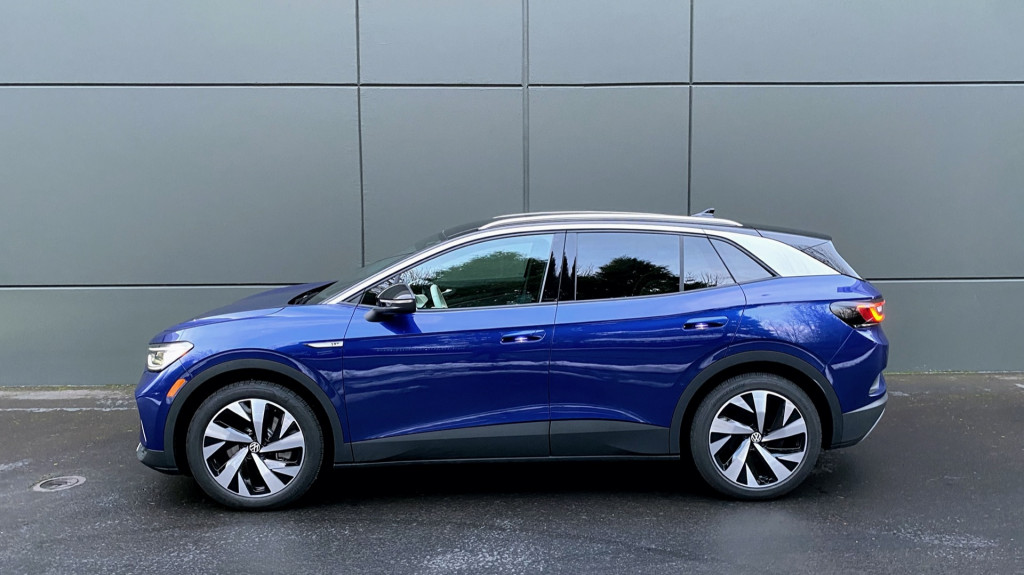
2021 Volkswagen ID.4 – First drive, Portland OR
The 2022 Audi Q4 E-Tron SUV, due later this year sharing its platform with the VW ID.4, will arrive with a different interface, the company revealed—including an augmented reality head-up display.
In other product news, California-based Canoo revealed a stylish electric pickup truck that stands out from the crowd—including the Tesla Cybertruck, Rivian R1T, or GMC Hummer EV—by being sensibly sized.
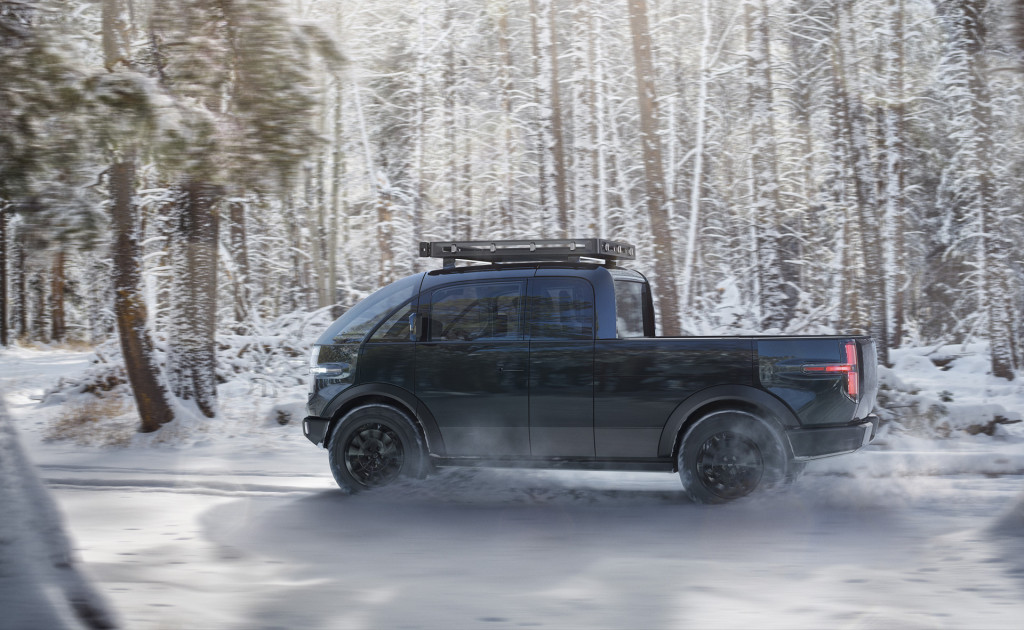
Canoo pickup truck
The 2022 Hyundai Tucson Hybrid has been priced to compete closely with hybrid versions of the Toyota RAV4, Honda CR-V, and Ford Escape.
Kia released a first teaser photo of the 2022 EV6 electric car, which is due to arrive in the U.S. by the end of 2021. It’s Kia’s first model built on the E-GMP platform for dedicated EVs, shared with Hyundai and Genesis, and the brand has suggested it will offer 20-minute DC fast charging and a range of about 300 miles.
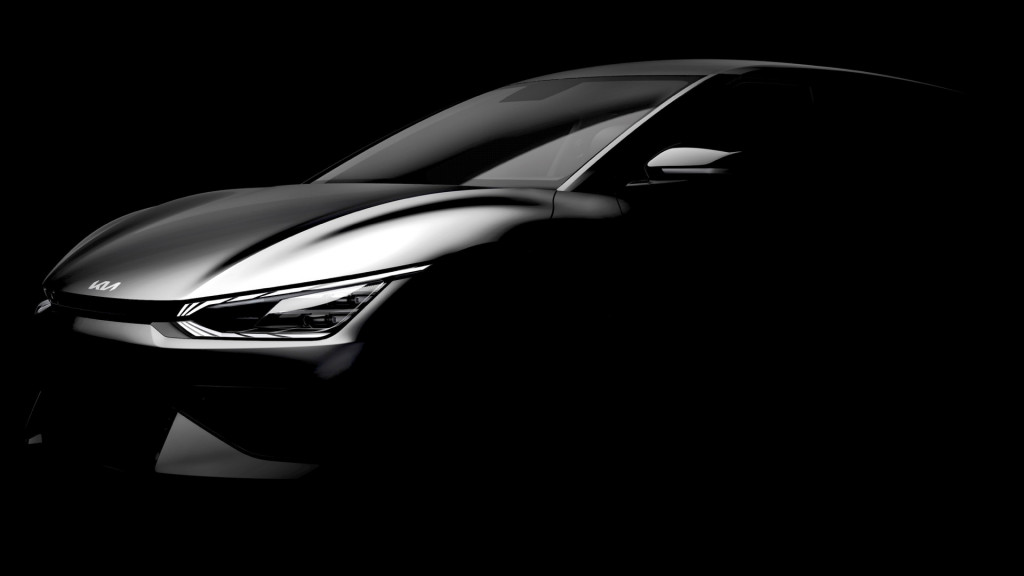
2022 Kia EV6 teaser
Bollinger Motors has released more information about its battery pack, which ranges up to 402 kwh, and laid out base pricing for its Chass-E and Chass-E Cab models that could be the start for tow trucks, delivery vehicles, ambulances, and much more.
Rivian CEO RJ Scaringe showed in a short video that with very flat-folding seats, the company’s R1S electric SUV makes an “awesome car-camping setup.”
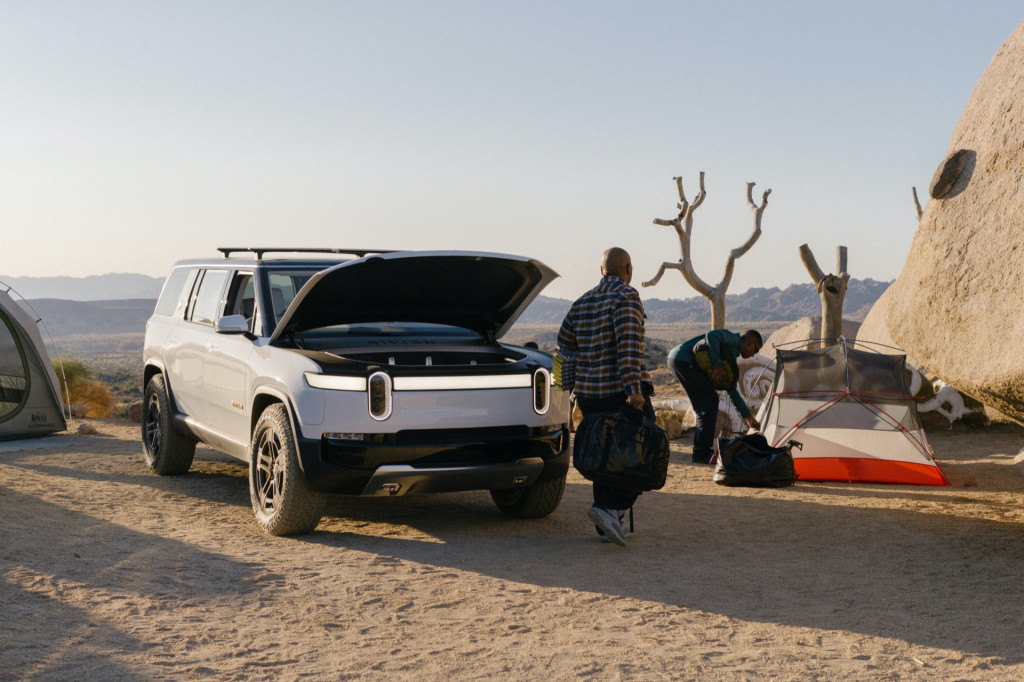
Rivian R1S
Rear-wheel-drive versions of the Porsche Taycan have been EPA-rated—at either 200 or 225 miles, depending on the battery.
Volvo is switching to an online sales model for its 2022 model year electric vehicles. Although it means no more haggling or markups, the model might include a stronger role for dealerships in after-sales support.

Magna eBeam propulsion system for electric or hybrid trucks
In the technology corner, The supplier Magna has shown what it calls “a game-changer for pickup truck electrification”—in the form of a solution that can bring electric power to live-axle, body-on-frame layouts without other costly changes. And GM is pushing ahead with the development and testing of lithium-metal battery technology, which might be a solution phased in to help cut cost and add range by the middle of the decade. VW also showcased a pilot battery recycling plant in Salzgitter, Germany, that will help the company recover up to 95% of raw materials for potential reuse.
In Toyota’s push to go big on fuel cells, it revealed a neat module—in two layouts—of its hydrogen fuel-cell stack, for use in multiples in large applications like ships, trains, or buses. Production and storage of the hydrogen is not included.
Volkswagen confirmed a next-generation electric vehicle due in 2026 and offering a long range, very short charging time, and a higher level of autonomous driving. Perhaps even more important, it will mark the start of cars becoming “software-based products” in which drivers can unlock features at extra cost.
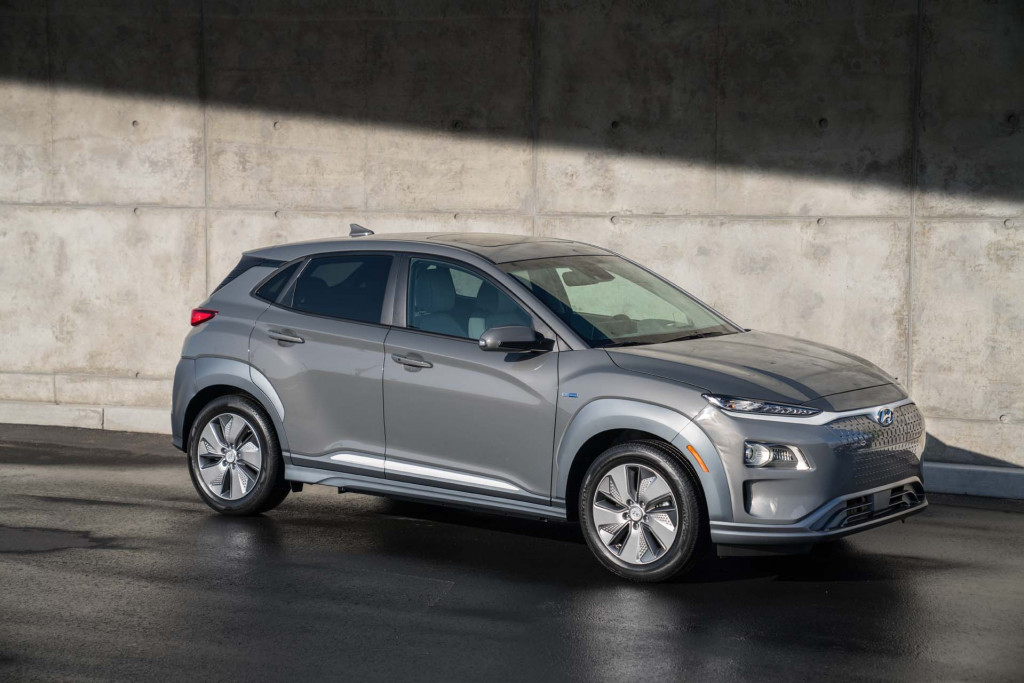
2019 Hyundai Kona Electric
Hyundai detailed its recall effort—including full battery replacement—due to concerns over fire on 2019 and 2020 Kona Electric models. The recall effort starts April 30, and the automaker is suggesting owners park outside in the meantime.
LG Chem is reportedly planning to build cells in Tesla’s new 4680 cell format, in the U.S. It’s not clear whether this is the same facility it’s also in talks with GM over.

USPS Next Generation Delivery Vehicle – Oshkosh Defense
The USPS contract announced last month, which only assured that 10% of upcoming postal vehicles will be fully electric, might not be a done deal. Congress is considering legislation requiring more EVs—and a policy that goes more closely with what the Biden administration had suggested.
And last weekend we looked at the idea of a by-the-kwh “electric fuel” tax for EVs. Could this solution proposed in Minnesota help give states an answer to dwindling gas-tax revenue—perhaps in addition to a national miles-traveled tax?
_______________________________________

